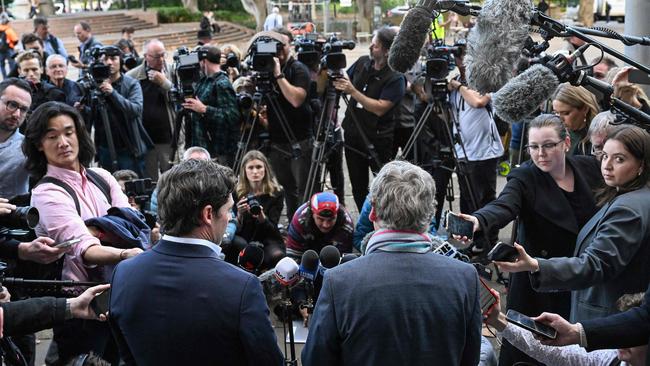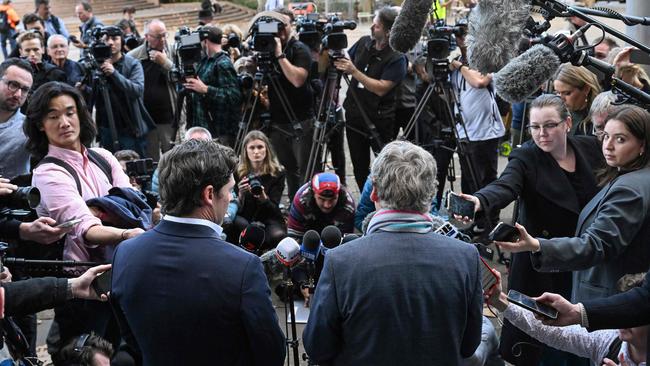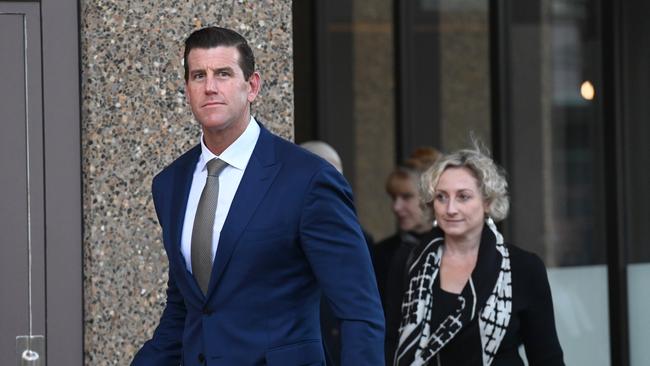Ben Roberts-Smith defamation loss: Nine Newspapers could struggle to recover legal costs for $30 million case
While the judgement in the Ben Roberts-Smith defamation case amounts to a clear victory for Nine Newspapers, there’s a glaring issue hidden in the $30 million saga.

COMMENT
The judgment in the Ben Roberts-Smith defamation case amounts to a clear victory for Nine Newspapers and the cause of serious daily news journalism throughout Australia.
The finding that Roberts-Smith is a war criminal came after 110 days of court sittings, 41 witnesses, thousands of pages of documents and numerous interruptions by the defence department.
The Commonwealth was at it again yesterday: making a last minute demand that the court delay the release of a written judgment so that they can scan it for “national security” concerns. What possible national security concerns could apply at this stage? Future troop movements in the Somme? That war like this case is over.
Make no mistake. This was a glorious win for the newspaper artists formerly known as Fairfax. But at what cost? I am reliably informed that total legal costs for the four-year battle have reached a figure well north of $30 million. That’s an astonishing amount for just one case. And more costs will be incurred as BRS exercises his legal right to appeal the verdict.

Even if the verdict is upheld by the Full Court, Nine Newspapers may still struggle to recover full legal costs from Team BRS, unless it can convince the Federal Court to award what are known as indemnity costs. Typically, winning parties in defamation matters only receive 60-70 per cent of their actual costs.
How did we get here? How did defamation cases become so complex and expensive in Australia? What could be done to improve the process? There has to be a more cost effective and efficient way of resolving reputational disputes.
The defamation law reforms introduced in 2021 have gone some way to improve things. A new ‘public interest’ defence is likely to discourage some undeserving plaintiffs from bringing new claims in the future. Remarkably, Nine prevailed in the BRS case yesterday without the use of this defence (its case began before the new laws came into being).
But even the new laws have their limits. For example, for reasons known entirely to itself, the West Australian Government is yet to follow all the other states and enact the 2021 defamation law reforms. Plaintiffs (a fancy word for complainants) can still hop aboard the Indian Pacific and take advantage of the old laws in Perth.
This situation illustrates another barrier to a serious review of defamation laws in Australia. Those people responsible for legislative reform are members of a group which is among the most frequent users of the libel writ.

Politicians of every persuasion are still turning to the courts to seek financial relief for reputational slights. This is despite having access to a parliamentary chamber where they can refute any slander and say anything they like about anyone they hate. Why should they be allowed to tie up public court resources? But I digress.
Separate to the operation of the Defamation Act, the practices and procedures of the defamation courts are so complex in this country that you need a degree in cryptology to decipher their labyrinthine rules.
By way of example, current rules require defamation defendants to prepare lengthy defences (truth, contextual truth, qualified privilege etc) to a list of imputations submitted by plaintiffs, even if they do not believe those meanings arise in the first place. The question of whether these meanings are conveyed is often deferred to the end of the trial. Why not decide them before the trial gets underway and save everyone time and expense?
Why not dispense with these confected imputations altogether and allow the court to decide whether or not an article, viewed as a whole, is defamatory of the plaintiff and, if so, whether any defences would apply?

Another issue ripe for consideration: should juries be mandatory for defamation trials? Since the 19th century the common law has required an assessment of the views of the “ordinary and reasonable” reader. Does the average rider of the Clapham omnibus or the Bondi tram think a particular newspaper article is defamatory? Do they agree with the plaintiff’s or the defendant’s interpretation of the meanings?
Our judges in Australia are clearly reasonable. But they are far from ordinary. It’s safe to say that Their Honours’ views would occasionally differ from those of the ordinary Joe or Josephine. There are reasons why certain plaintiffs prefer judge-alone courts.
But this is just nitpicking. Ultimately, the only way to achieve genuine reform in this country is through constitutional amendment. Australia is the only English-speaking nation on the planet that does not have constitutional protection for freedom of speech. A lot of these ills would be cured by the adoption of our version of the First Amendment. We need to give voice to free speech.
Michael Cameron is national editorial counsel for News Corp Australia. He is admitted to practice in the state of New South Wales and the state of New York.


